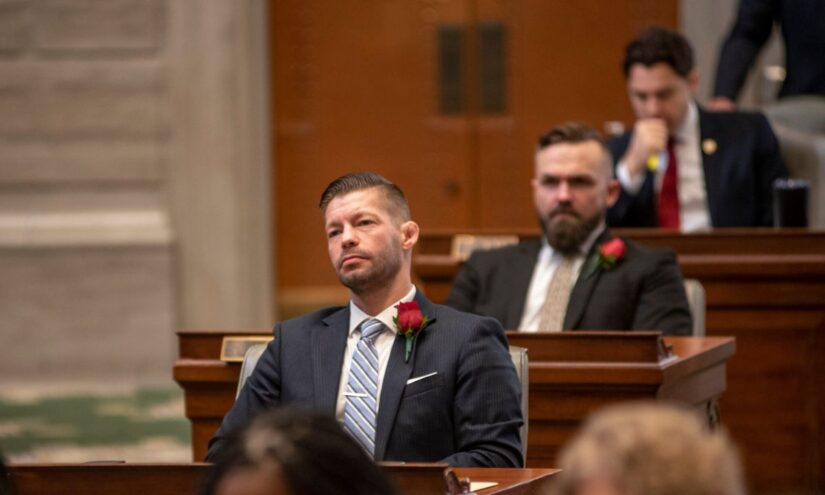During this summer, a team of students from MIT embarked on a journey to the sou …
Bill Proposes Allowing Homeschool Students to Participate in Missouri Public School Sports
Emma Wordsmith

In preparation for the next legislative session, a bill has been introduced in Missouri to allow home-educated students to participate in public school activities. This bill also includes provisions that would reduce state oversight of homeschooling families, marking a significant change from the previous version. The original bill was only two pages long and focused solely on granting homeschool kids the opportunity to join sports teams and clubs in public schools. However, the new version would create a new category for home-educated students and strip attendance officers of their authority over homeschooling families.
Senator Ben Brown, a Republican from Washington, sponsored a 52-page bill that closely resembles the previous version that passed the Senate. He highlighted the importance of such opportunities in his testimony to the Senate Education and Workforce Development Committee, citing his own experiences as an athlete and the positive impact it had on his life.
The Missouri State High School Activities Association currently allows homeschooled students to participate in local school district sports if they are enrolled in at least one credit hour of instruction, typically equivalent to two classes in schools that don’t have block schedules. However, individual school districts have the authority to impose stricter restrictions and prohibit homeschool participation. Brown’s bill seeks to prohibit schools from requiring enrollment in classes, allowing homeschooled students to freely join sports teams and clubs, while still requiring any necessary instruction or training for those activities.
During the March hearing, no one expressed opposition to the bill, but the current version seeks to remove local oversight of homeschooling families entirely. State Representative Maggie Nurrenbern, a Democrat from Kansas City, expressed concerns about the legislation, particularly regarding the lack of knowledge about which students are being homeschooled. She emphasized the need for reporting procedures to identify homeschooled students. Currently, families can voluntarily submit a declaration of enrollment stating their intent to homeschool to the local school district or the county recorder of deeds. However, the bill proposes removing this requirement, a change supported by Kim Quon, a regional director for the Missouri homeschool advocacy organization Families for Home Education.
This bill would also eliminate attendance officers’ ability to investigate compliance with the state’s compulsory attendance law, which requires homeschools to provide at least 1,000 hours of instruction, with a minimum of 600 hours dedicated to core subjects like reading and math. Quon stated that homeschooling families do keep track of their hours, but they do not submit that information for review. She argued against the need for attendance officers to check on homeschooling families, suggesting that such scrutiny is unnecessary. However, Quon acknowledged that the Department of Social Services’s Children’s Division can still investigate instances of neglect if a child has been removed from public school.
The Children’s Division’s potential involvement in cases of neglect is a point of agreement between Quon and Nurrenbern. However, Quon expressed concerns about attendance officers potentially abusing their power in their oversight of homeschooling families. While she was not aware of significant instances of attendance officers investigating homeschooling families, she believes the existence of that power leaves room for such actions in the future.
Regarding homeschooling families’ opinions on their children participating in public school sports and clubs, Quon noted that there are various perspectives. Some families value the privacy that homeschooling provides, while others desire access to the resources and opportunities that their tax contributions support. Brown’s bill attempts to address these privacy concerns by introducing the concept of “FLEX schools” or family-led educational experience schools. FLEX students would have the ability to participate in public-school activities and potentially obtain K-12 scholarships through the state’s MOScholars tax-credit program. Zeke Spieker, a legislative assistant to Senator Jill Carter, a Republican from Granby, believes this aspect of the bill could address some of the concerns homeschooling families have about losing their freedom in the face of increased access to public school activities.
Homeschooling families residing far from major cities, where alternative options to public school activities are limited, would potentially benefit the most from this bill, according to Quon. Families for Home Education takes a neutral stance on the legislation as long as there are no extreme amendments. In the previous legislative session, the bill expanded to include provisions regarding four-day school weeks, school board vacancies, foster-child enrollment, and other education matters. However, it did not progress beyond the House committee stage. The fate of the bill will likely depend on any forthcoming amendments that may be attached to it.


